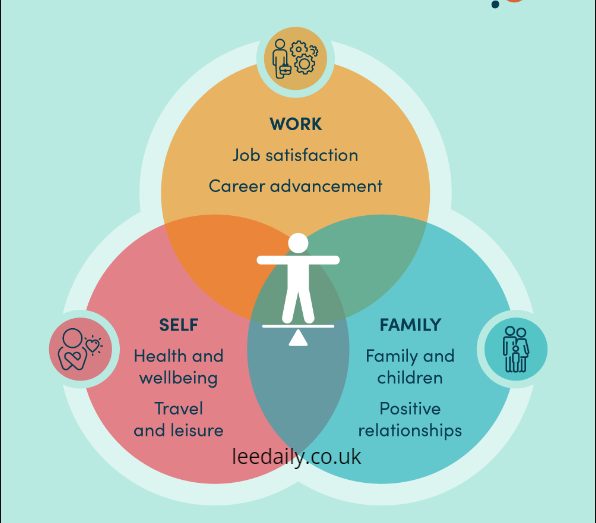Balancing work, life, and health is a challenge that many face in today’s fast-paced world. Whether you’re climbing the corporate ladder, managing a household, or juggling both, achieving a state of optimal wellbeing requires conscious effort and strategic planning. In this article, we’ll explore actionable steps to help you balance these essential aspects of your life.1. Prioritize Your TimeSet Clear Boundaries: One of the first steps to achieving balance is setting clear boundaries between work and personal life. Define specific times for work, relaxation, and family. Communicate these boundaries to your employer, colleagues, and family members.Use a Planner: Schedule your tasks and activities. A well-organized planner can help you allocate time for work, exercise, meals, and leisure activities, ensuring you don’t neglect any aspect of your life.2. Focus on HealthExercise Regularly: Physical activity is crucial for both mental and physical health. Incorporate at least 30 minutes of moderate exercise into your daily routine, whether it’s a brisk walk, a gym session, or yoga.Eat Balanced Meals: Fuel your body with nutritious foods. A diet rich in fruits, vegetables, lean proteins, and whole grains will keep your energy levels up and your mind sharp.Prioritize Sleep: Quality sleep is essential for recovery and mental clarity. Aim for 7-9 hours of sleep per night to ensure your body and mind are well-rested.3. Manage Stress EffectivelyPractice Mindfulness: Engage in mindfulness practices like meditation or deep breathing exercises to manage stress. Taking just a few minutes each day to center yourself can have a significant impact on your overall wellbeing.Take Breaks: Don’t let stress build up. Take short breaks throughout your workday to recharge. Even a quick walk or a few minutes of stretching can help clear your mind and reduce stress.4. Cultivate a Support SystemLean on Loved Ones: Having a strong support system is crucial for maintaining balance. Whether it’s family, friends, or colleagues, don’t hesitate to seek support when you need it. Sharing your challenges and successes with others can alleviate stress and foster a sense of community.Seek Professional Help: If you find it challenging to manage stress or balance your life, consider speaking with a counselor or therapist. Professional guidance can provide you with tools and strategies to maintain equilibrium.5. Integrate Work and LifeEmbrace Flexibility: Where possible, embrace flexible working arrangements such as remote work or adjusted hours. This can help you better manage your time and reduce the stress associated with commuting or rigid schedules.Pursue Hobbies: Engaging in activities you love outside of work is essential for your mental health. Whether it’s reading, gardening, or playing a sport, hobbies provide an outlet for relaxation and creativity.6. Reflect and AdjustRegular Self-Assessment: Periodically evaluate how balanced your life is. Reflect on what’s working and what isn’t. Are you spending too much time on work at the expense of your health? Are you neglecting relationships? Adjust your priorities accordingly.Set Realistic Goals: Instead of striving for perfection, aim for realistic and achievable goals. Understand that balance doesn’t mean equal time for everything but finding a rhythm that works for you.ConclusionBalancing work, life, and health is a dynamic process that requires continuous effort and adjustment. By setting priorities, managing stress, cultivating a support system, and being flexible, you can create a harmonious lifestyle that promotes optimal wellbeing. Remember, balance is not about perfection but about making conscious choices that support your overall happiness and health.
